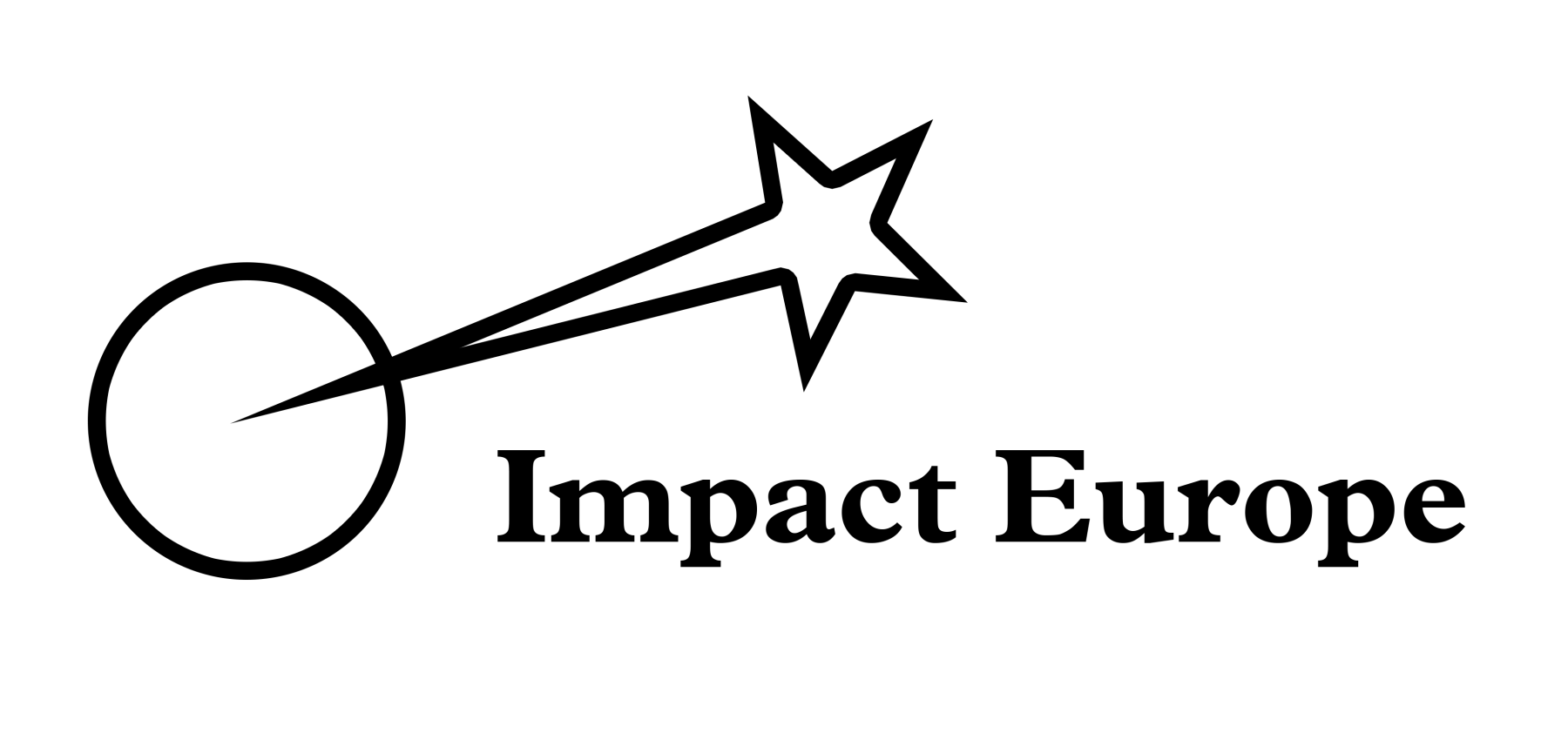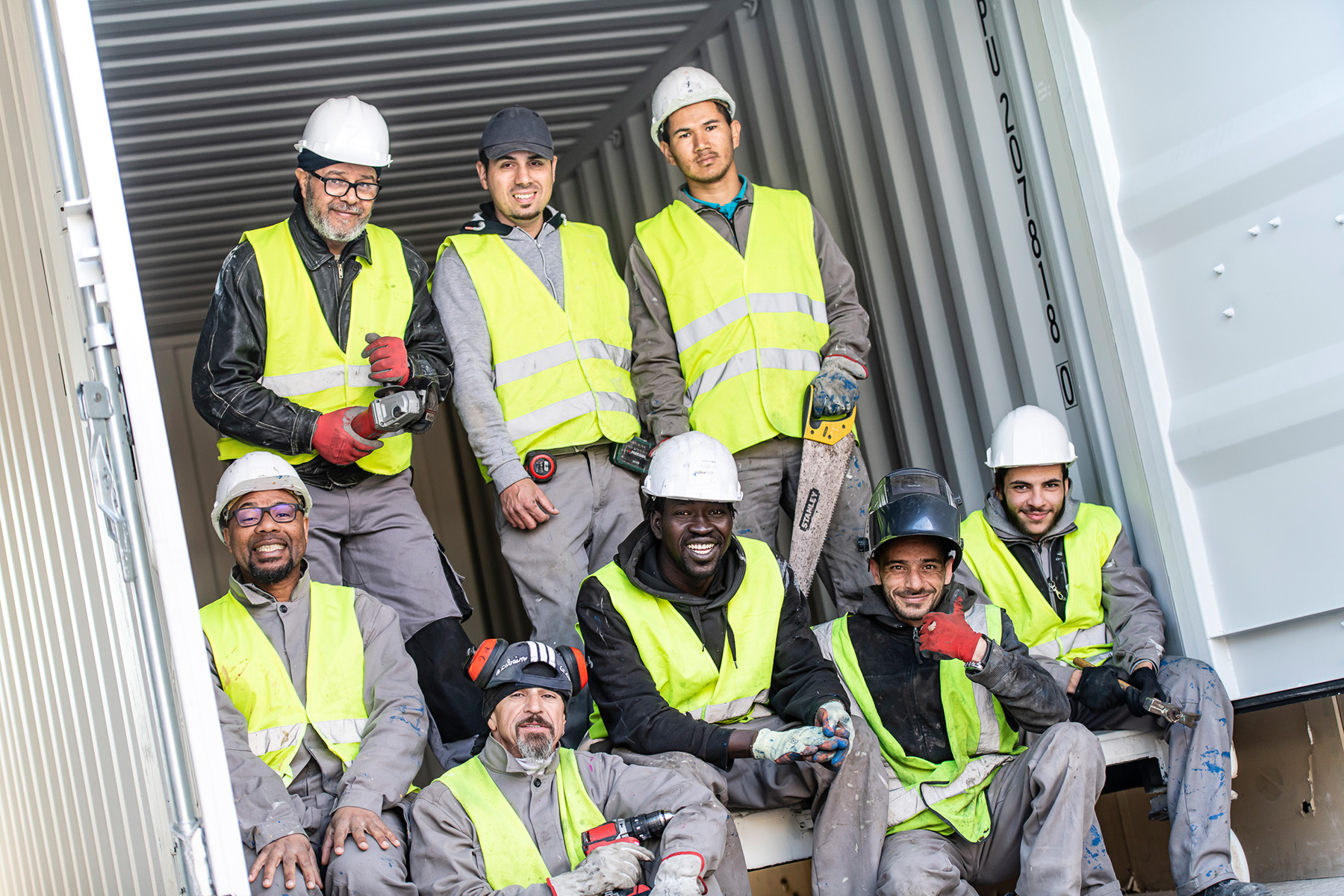Social Challenge and Innovative Solution
Access to the labour market is essential for people who are at risk of social exclusion. La Varappe is a company specialised in social inclusion through offering employment opportunities. Its model is based on employing people who are at risk of being socially excluded, offering them interim positions in the construction and public works, waste treatment, health, maintenance of green spaces and renewable energy sectors.
Along with remunerated work for up to two years, La Varappe offers social, professional and training support to the final beneficiaries. This journey helps them to increase their chances of finding a regular job and facilitates their inclusion in society.
Key Social Impact Figures
As of end of 2019
Investing for Impact
How it started
Phitrust met La Varappe in 2008. At that time, La Varappe was a small NGO in Aubagne (southern France) facilitating access to the labour market, with a turnover of €3 million. Phitrust Foundation, which had launched the fist social impact fund in France in 2005, was approached by Laurent Laïk, La Varappe’s new and talented manager, looking for a grant for their dedicated software. Phitrust noticed that La Varappe had a very efficient model with a high social impact and Laurent was a real potential social entrepreneur able to deliver both high growth and impact. Phitrust Partenaires (i.e. the investor for impact) proposed to create a company, subsidiary of the NGO, with the capacity to maximise their social impact and made an equity investment in this new SPO as one of the founders.
Support provided
First round: 2008-2014
Being the first shareholder after the NGO, Phitrust took a seat on La Varappe’s board, so it could adopt a highly-engaged approach and provide in-depth non-financial support. Pierre Darrot, who was a shareholder, member of the Phitrust Investment Committee and a seasoned CEO of different big corporates, became the representative of Phitrust on the board of the SPO.
At this stage, a crucial step was to establish the right governance and legal structure for La Varappe. Phitrust encouraged La Varappe to increase its commercial activity since it would help the SPO to maximise its social impact. They decided to set up a subsidiary commercial company, while the NGO would still operate as the holding structure. Laurent Laik became the CEO of la Varappe, and had weekly support from Pierre from the beginning.
Once the commercial structure was created, Phitrust continued supporting La Varappe in aspects such as daily management, finance, and human resources. The SPO already had a well developed social impact strategy, and therefore needed less advice from Phitrust on this aspect. After a second investment in 2009, Phitrust had invested 500.000€ in La Varappe with a share of 29% of its equity, the NGO still having 50,01%.
Second round: 2014-2019
In 2014 other investors active in the French impact space, such as BNP Paribas, Amundi and INCO, invested 717.000€ along with France Active and Phitrust. However, Phitrust remained the first shareholder, with 25%, after the NGO, which then had a minority stake, but with special rights to protect the organisation's social purpose.
If Phitrust had exited the investment at this stage, it would have achieved high financial returns. However, Phitrust’s Investment Committee realised that they could still maximise the social impact of La Varappe, helping the SPO grow and develop new activities. Phitrust thus decided to keep its equity shares, accepting a lower financial return in favour of increasing its social impact.
In 2015, La Varappe had the opportunity to purchase a company with similar activity and size in the South East of France, thanks to a convertible bond of €1,5 million that was subscribed by all the investors. Phitrust actively supported Laurent in the deal (negotiation and financing structure).
Phitrust connected La Varappe with other corporations to establish partnerships. As a result, La Varappe partnered up in energy with the French company Schneider Electric, and developed a social housing programme in which its employees build houses with recycled containers to provide social housing to marginalised groups of people, and with Vincy.
Third round: 2019-current
After ten years of very high growth, La Varappe had a turnover of €42 million and a profit above €1 million. In light of its sound financial figures, the co-investors that had joined this venture in 2015 decided to increase their investment. Phitrust also decided to re-invest through Phitrust’s second fund, Phitrust Partenaires Europe, which was created in 2016 in partnership with the European Investment Fund.
With this growth, La Varappe could hire more people and facilitate their access to regular jobs. They replicated the model all over France, establishing new businesses and setting up new partnerships. As one on the big actors in facilitating access to the labour market in France, for which the Government has decided to double its support, La Varappe has all the capacity (human, financial and governance) to amplify its already steady growth.
Theory of Change, Impact Strategy, IMM

Theory of Change, Impact Strategy, IMM
Financial management

Financial management
Fundraising

Fundraising
Governance

Governance
Management team and CEO support

Management team and CEO support
Access to networks

Access to networks
Operational management

Operational management
Impact Measurement
| Outcome | Indicator | Target | Results |
| Job opportunities offered to people with a distance to the labour market | Number of FTEs in work reintegration programmes and temporary jobs with training | 560 | 930 |
| People trained in order for them to develop their competences and soft skills for their future jobs | Number of hours of training provided during the year | 20,000 | 54,741 |
| Increase in employability and decrease of unemployment | Number of people who found a regular job after a work reintegration programme | 350 | 660 (80%) |
The targets were set in 2013 in order to align the vision of all stakeholders on a common goal and to have an idea of where the company would be five years later in terms of social impact. Phitrust co-created indicators with the manager of the social company and they set goals together in order to develop an impact measurement tool that would be a strategic and operational tool to implement on a day to day basis for monitoring the activity (and not just for reporting and communication use). The targets presented above were set for 2018 and the results are from 2018. La Varappe managed to exceed these ambitious goals. New targets were determined at the end of 2018 for the next 5 years.
A particular challenge for measuring and managing La Varappe’s impact is to define the targets and to understand the results since they depend broadly on the general state of the economy – i.e. if the macroeconomic situation is healthy, it is easier to provide the final beneficiaries with new jobs.
Having to align our positions at the end was not a smooth process every time but doing so always left us with stronger respect for each other and the desire to get into a next round soon…”
What's Next?
Currently, La Varappe still benefits from the strategic advice of Pierre Darrot, who is still a member of the board, and highly engaged in the daily management of the SPO. Since Phitrust re-invested in the SPO in 2019, they will not consider an exit before 2024. At that moment, they will consider exiting if La Varappe group has grown enough to attract new investors that can replace Phitrust’s equity investment.
Like other sectors, La Varappe has also been affected by the COVID-19 crisis. The SPO has responded to the crisis by focusing on three elements: (i) employee safety, (ii) enterprise safety, and (iii) turning this crisis into an opportunity to rethink the activity.
Despite these difficulties, the turnover has grown in 2020 with a positive net profit. In the words of Laurent Laïk: “This crisis demonstrates the urgency of the long term. Our long-standing relationships with our employees, suppliers, customers, and investors (such as Phitrust) lead to a mutual respect for our entire ecosystem. This is only possible thanks to the long term. It will help us to build back faster and address the challenges of employment. It is time to stop seeing inclusion through economic activity as a separate sector, but to turn the inclusive model into a model of entrepreneurship” (translated from this video conference, in French).








